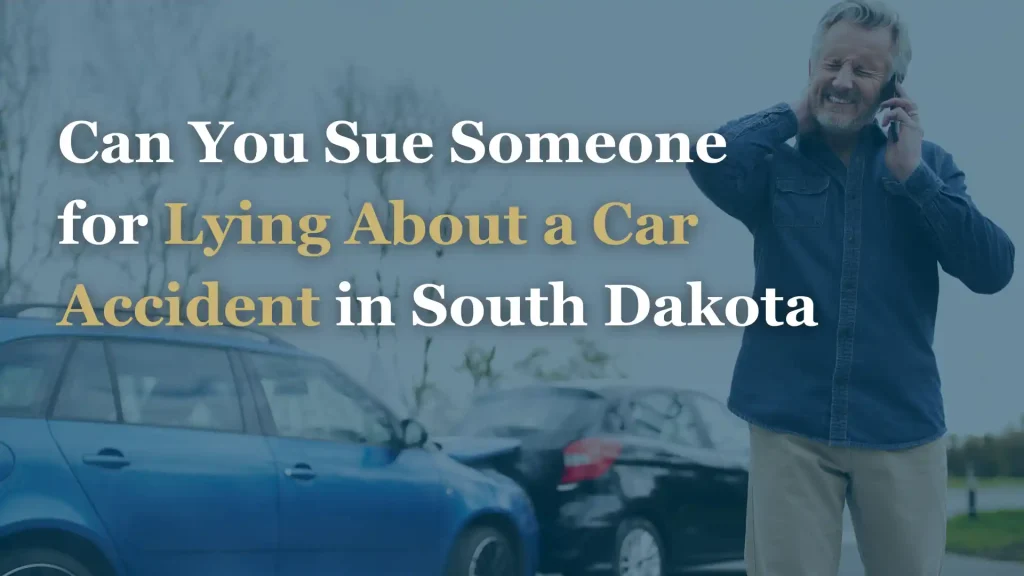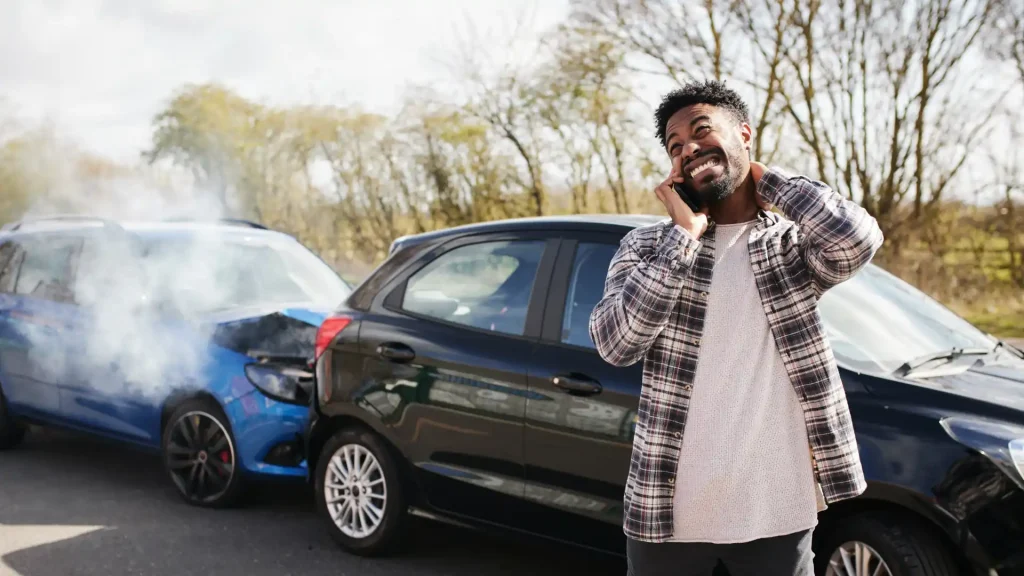
In a car accident claim, you may face challenges in pursuing compensation for your injuries and losses because another driver or party involved in the case has given false information or testimony to the police, insurance company, or the court. When you have an insurance claim denied or face losing a car accident lawsuit because the other party lied about the crash, what options do you have to protect your rights and interests? For example, can you sue someone for lying about a car accident and now deny liability for causing the accident?
Potential Claims Against Someone for Making False Statements About a Car Accident
When another party involved in your car accident claim knowingly gives false statements about the crash to the police or insurance company, adversely affecting your legal rights and interests, you may have legal claims to hold that party accountable for their conduct. For example, can you sue someone for lying about a car accident? You may have a fraud claim against a party who knowingly makes a false statement that you rely upon to your detriment, such as including that statement in an insurance claim, which results in the insurance company denying the claim. You might also have a defamation claim when a party knowingly makes a false statement that harms your reputation, such as accusing you of reckless driving and triggering a criminal prosecution.
Consequences of Making a False Car Accident Report to the Police
Under South Dakota law, a person who provides false information to law enforcement about a car accident or files a crash report containing false information may face prosecution for false reporting to authorities, a Class 1 misdemeanor. A conviction for false reporting to authorities may result in a penalty that includes up to one year of incarceration in a county jail, a fine of up to $2,000, or both incarceration and fines.
A person who provides false information or testimony in a car accident case, such as in a deposition or trial testimony given under oath or affirmation, may also face prosecution on perjury charges. South Dakota law defines perjury as occurring when a person, after taking an oath to testify or certify as accurate before a tribunal, officer, or person in any state or federal action or proceeding in which a party may administer oaths, intentionally states material information they know to be false. Perjury constitutes a felony offense, with the grading of the felony dependent on whether the perjury occurs in a felony trial (Class 3 felony), in any other trial, court proceeding, deposition, or administrative proceeding conducted under oath (Class 5 felony), or any other matter proscribed by law (Class 6 felony). Penalties for a perjury conviction can include:
- Class 3 felony: Up to 15 years in prison and a potential fine of up to $30,000
- Class 5 felony: Up to five years in prison and a potential fine of up to $10,000
- Class 6 felony: Up to two years in prison and a potential fine of up to $4,000
The Implications of a Car Accident Witness Lying to the Insurance Company
However, an insurance company that relies on false information to deny a car accident claim may open themselves to a bad faith claim filed by a claimant. When an insurance company uses information knowing that the person who provided that information lied, or an insurer knowingly disregards facts that would cause a reasonable party to dispute the veracity of the person’s information or statement, they may become liable to a claimant whose car accident claim they deny in a bad faith claim.
Steps to Take After Getting Wrongly Accused of a Car Accident

When the other party in your car accident case has falsely blamed you for causing the crash, you can take steps to protect your rights and interests by:
- Request copies of the police accident report.
- Speak to eyewitnesses to the crash to obtain statements about what they saw.
- Recover copies of dashcam footage from vehicles involved in or near the crash and copies of traffic/surveillance camera footage.
- Gather evidence you obtained after the accident, such as photos/videos of the accident scene.
Finally, contact a car accident attorney who can help you build a compelling case to prove the falsity of the other party’s testimony, including by obtaining accident reconstruction expert reports and testimony that persuasively explain how the other party’s account could not have happened.
Challenging in Proving the Other Party Lied About the Crash
You may face various challenges to obtain relief from a party who intentionally makes a false statement in your car accident claim. First, you must prove the falsity of the other party’s statements, which may require you to gather substantial or compelling evidence to eliminate any doubt about the falsity of the other person’s statements. Second, you must prove that the other party knew they provided false information, which may prove challenging as parties rarely obtain direct evidence of a person’s culpability in providing false information.
Contact a Car Accident Attorney Today
When another party involved in your car accident case has knowingly provided false information, testimony, or evidence, get the legal help you need to protect your rights and interests. Contact Watertown car accident lawyer at Turbak Law Office, P.C. today or call 605-886-8361 for a free, no-obligation consultation to discuss your options when someone lies and adversely affects your car accident claim.
Related Posts:
Why Do Insurance Companies Deny Claims?
What Is the Discovery Process in a Lawsuit?
Compensatory vs. Punitive Damages: What’s the Difference?
Why You Need a Car Accident Attorney Even for the Smallest Collisions
Your Vehicle Was Wrecked, and It Wasn’t Your Fault! Now What?